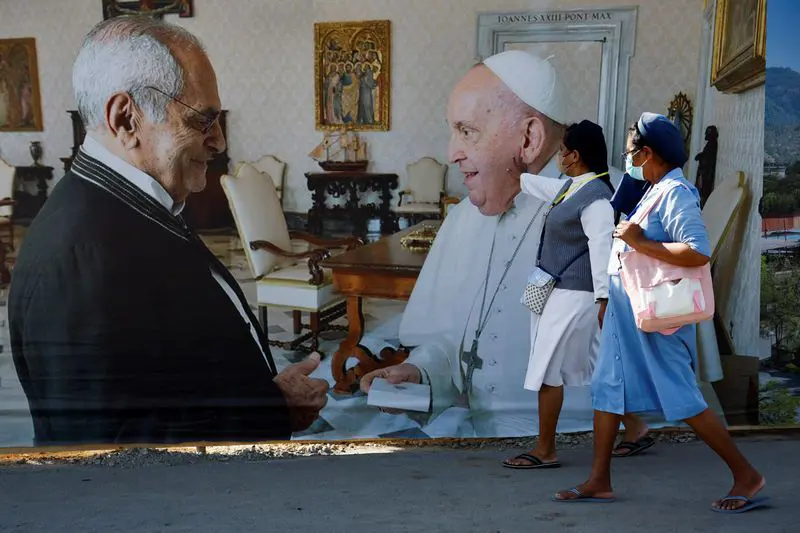The anticipated visit of Pope Francis is generating significant excitement in the predominantly Catholic nation of East Timor.
On September 8 (Reuters) – Pope Francis is set to arrive in Dili, the capital of East Timor, this week, marking a significant contrast to the nation visited by his predecessor. The last papal visit to Dili occurred in 1989, when Pope John Paul II came to a territory under Indonesian occupation, providing a crucial boost to East Timor’s emerging independence movement and elevating its visibility on the international stage.
Father Francisco Barreto, who was present during that historic event, reflected, “It was an opportunity for us to express our right to fight for our liberation,” as protesters displayed banners advocating for independence in front of global media for the first time. As East Timor, now one of the world’s newest predominantly Catholic nations, prepares for this second papal visit, the 72-year-old priest emphasized that the current struggle focuses on the development of the impoverished half-island nation.
This visit is a grace from God,” Barreto stated in a phone interview from Dili, where he serves as a chaplain in both a hospital and a prison. “It will infuse new life and energy into our efforts for the advancement of this nation… the political and economic conditions are not favourable.
In 2022, the Vatican acknowledged that it had imposed sanctions on Timorese Bishop and Nobel laureate Carlos Filipe Ximenes Belo following accusations of sexual abuse involving boys in Timor during the 1990s. The previous year, a defrocked American priest received a 12-year prison sentence for sexually abusing girls entrusted to his care in Timor. These incidents have sparked a division in public opinion.
Michael Leach from Swinburne University in Australia remarked, “There is considerable resistance among some Timorese to confronting these distressing cases due to the church’s historical significance in the successful pursuit of self-determination.” It remains uncertain whether Pope Francis will address these divisions, yet thousands are anticipated to gather in the coastal capital regardless. Leach noted, “The turnout will be remarkable; Catholicism is a unifying force for the Timorese people.
The Catholic Church is so deeply intertwined with East Timor’s struggle for independence that Xanana Gusmao, a national hero and the current Prime Minister, referred to it as the “backbone of the resistance.” Prior to Indonesia’s invasion in 1975, the Timorese predominantly practiced animism and spoke local languages. Under Indonesian law, they were compelled to adopt one of the six recognized religions, with animism excluded. Embracing Catholicism became a means of rejecting integration with the predominantly Muslim Indonesia, resulting in an increase of Catholic identification to over 95% at the time of independence, compared to less than 30% before 1975.
Leach stated, “Converting to Catholicism was seen as a nationalist act. The concept of a Timorese nation largely emerged during that era.” Furthermore, diplomats and journalists often relied on trusted church leaders, who were well-informed and courageous in discussing the realities on the ground, frequently providing a counter-narrative to the official accounts from Jakarta, according to Donald Greenlees, a senior adviser at Asialink, University of Melbourne. “The church served as a vital source of information, offered refuge, and critically provided spiritual support.”

